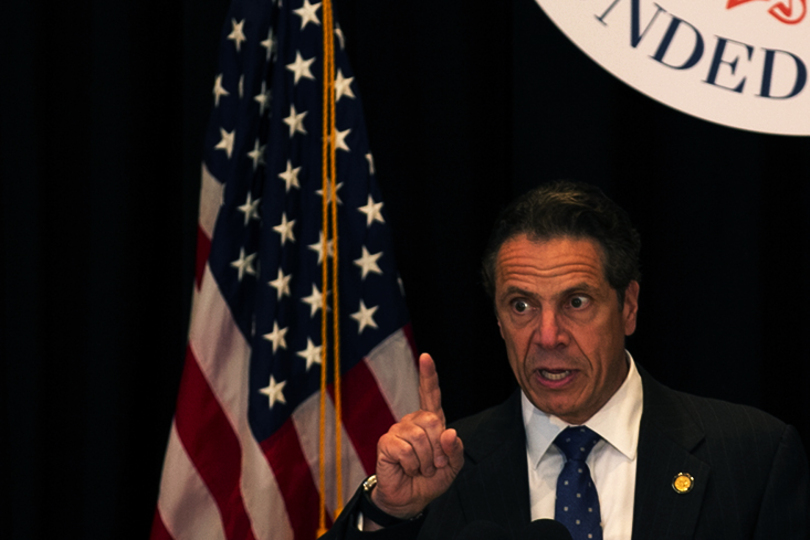Cuomo signs anti-discrimination legislation aimed at protecting women

Gov. Andrew Cuomo recently signed a series of bills that fall under the 10-point Women’s Equality Act, aimed at protecting women against discrimination. Logan Reidsma | Photo Editor
New York state Gov. Andrew Cuomo recently signed a number of bills that aim to protect women against discrimination and inequality based on gender.
The eight recently approved bills fall under the 10-point Women’s Equality Act, which Cuomo introduced in January 2013. The assembly passed the full 10-point act in June of the same year, but it had to be broken up into separate bills following backlash from the state Senate regarding abortion rights, according to the League of Women Voters of New York State’s website.
The new laws address pay equity, sexual harassment in the workplace, human trafficking, recovery of attorney fees in sex discrimination cases, familial status and domestic violence discrimination in housing and pregnancy accommodations in the workplace.
One of the bills will prohibit employers from paying women less than men in the same position. It also eliminates a loophole in which employers can prohibit employees from discussing salaries under threat of termination or suspension, according to the governor’s website.
“We’ve been a big supporter of the Women’s Equality Agenda. I think it’s really important and helpful legislation, and it helps to correct some technicalities and helps to move things forward in a positive way,” said Randi Bregman, executive director of Vera House.
Employers must also provide reasonable accommodations for pregnant employees.
Employees can now report sexual harassment in the workplace despite employer size — the previous definition of an employer in New York state is an employer with four or more employees.
Landlords are now prohibited from discriminating against survivors of domestic violence and based on familial status in attempts to rent or lease housing.
“I think the family status discrimination, the housing discrimination, the discrimination based on the status of a victim would make a difference to the people that we’re serving currently. Finding a place to live based on your status as a victim can be a real challenge,” Bregman said.
Under one of the bills, a pilot program will be launched so that victims of domestic violence can get temporary orders of protection online rather than having to seek them in person —which for some people is not possible.
“(The bills) give women who feel that they have been discriminated (against) a good platform in which to make a legal argument,” said Kristi Andersen, a professor of political science at Syracuse University.
Andersen said she believes all of the pieces of legislation are important and she is glad they all got passed. She doesn’t fault Cuomo for not being able to pass the last bill and sees it as a necessary compromise.
For the first time there is also a bill which allows for plaintiffs to recover attorney fees as a remedy, according to the governor’s website.
“I think that will encourage women to come forward and some lawyers who couldn’t take these cases previously will be able to right now and assist women with these very important issues, “ said Brian Schaffer, a partner at Fitapelli & Schaffer, an employment law firm based out of New York City.
Human trafficking laws will be strengthened by no longer requiring that there be proof of coercion in relation to the sex trafficking of minors, increasing penalties and creating a defense for prostitution if the defendant was a victim of trafficking, according to a Cuomo press release.
Schaffer said he believes that Cuomo’s news bills are progressive in comparison to the rest of the country.
“A lot of states simply track the federal law which is Title VII of the Civil Rights Act,” Schaffer said.
In addition, the governor has announced the state will be allocating $6.4 million for sexual assault prevention and assistance providers throughout the state. A large percentage of the money, $4.5 million, will go toward the “Enough is Enough” legislative package.
“Enough is Enough” is a legislation that combats sexual assault on college campuses in New York state. It requires all colleges to adopt a set of procedures and guidelines around sexual assault — including a uniform definition of consent, an amnesty policy and increased access to law enforcement for students.
The Department of Health will be receiving $1 million of the $6.4 million and the Office of Victim Services will receive $900,000.




